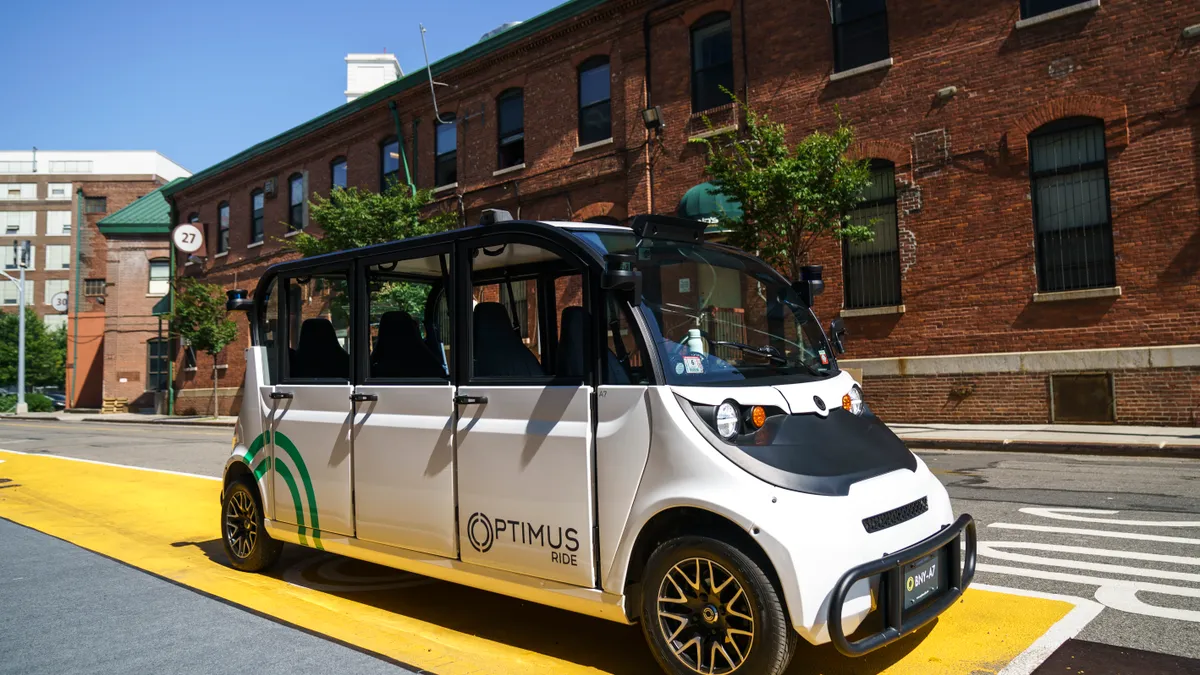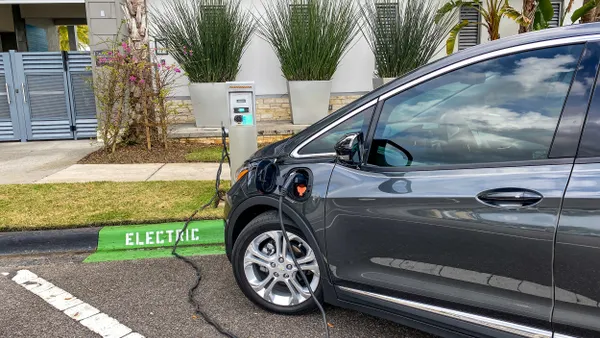Dive Brief:
- New Jersey officials are attempting to launch what the state describes as the nation's first autonomous vehicle (AV)-based urban transit system in capital city Trenton.
- The New Jersey Department of Transportation earlier this month put out a request for expression of interest (RFEI) for a vendor that could launch Trenton MOVES — a transit project that would deploy about 100 electric-powered AVs that can shuttle Trenton's 90,000 residents around the city.
- Residents could summon the AVs through a mobile device or at about 50 on-demand transit kiosk stations, according to the RFEI, where passengers would be picked up and dropped off. In a statement, New Jersey Gov. Phil Murphy said the system would help the state move toward its goal of becoming "the innovation center of America" and provide "a new, affordable transportation solution for underserved areas of Trenton."
Dive Insight:
AV testing on city streets has grown in recent years as the technology continues to inch closer to readiness for widespread use. The transportation mode has even been offered as a shuttle service to some city residents. In June, the California Public Utilities Commission authorized General Motors subsidiary Cruise to pilot a free pilot driverless car service to the public. Last year, the state issued its first deployment permit to robotics company Nuro to launch a fee-based driverless delivery business in two Bay Area counties.
Columbus, Ohio, also offered a shuttle program as part of its federal grant-funded Smart Columbus program that ended earlier this year — a service that was eventually paused after a rider fell off their seat, suffering a minor injury. The National Highway Traffic Safety Administration eventually lifted the suspension with the condition the city makes minor safety adjustments such as adding seatbelts.
But unlike California and Ohio, New Jersey's plans to use AV technology for an on-demand transit system aim to make it an actual public service that could help the city bridge the first and last mile of transportation and improve socioeconomic mobility, said Richard Sun, a transportation policy advisor to the New Jersey governor.
David Zipper, a visiting fellow at the Harvard Kennedy School focused on the future of cities, technology and mobility, said it is unclear how feasible or useful new technologies like AVs or hyperloops actually are to achieve transportation goals. He said transit agencies sometimes race to be the first to pursue "sexy new transportation technologies" because "they fall prey to chronic insecurity."
"They are afraid they will be left out and eager to get it before others,” said Zipper.
But New Jersey state officials have high hopes that such a system could help Trenton's underserved communities.
The Trenton Mobility & Opportunity: Vehicles Equity System (MOVES) project promises to "provide safe, equitable, affordable, and sustainable high-quality mobility," the governor's office stated in a press release. According to 2019 U.S. Census Bureau estimates, nearly 29% of the city's residents live in poverty. And according to the RFEI, 70% of households have one or fewer cars.
Sun said the project in part distinguishes itself from other AV projects due to its equity focus. "We were really trying to solve a problem for the right reasons and we had buy-in from the local community," Sun said.
Vehicles will carry four to eight passengers at a time and a "customer host" will be on-board for about the first two years before going completely driverless, the RFEI stated. The service could expand throughout Trenton's Mercer County after two years. Each AV vendor and vehicle, according to the RFEI, is required to go through a "rigorous technical and operational vetting process."
The service will be provided at "much lower fares" than traditional taxis or ride-hailing services and comparable to bus and rail transit.












